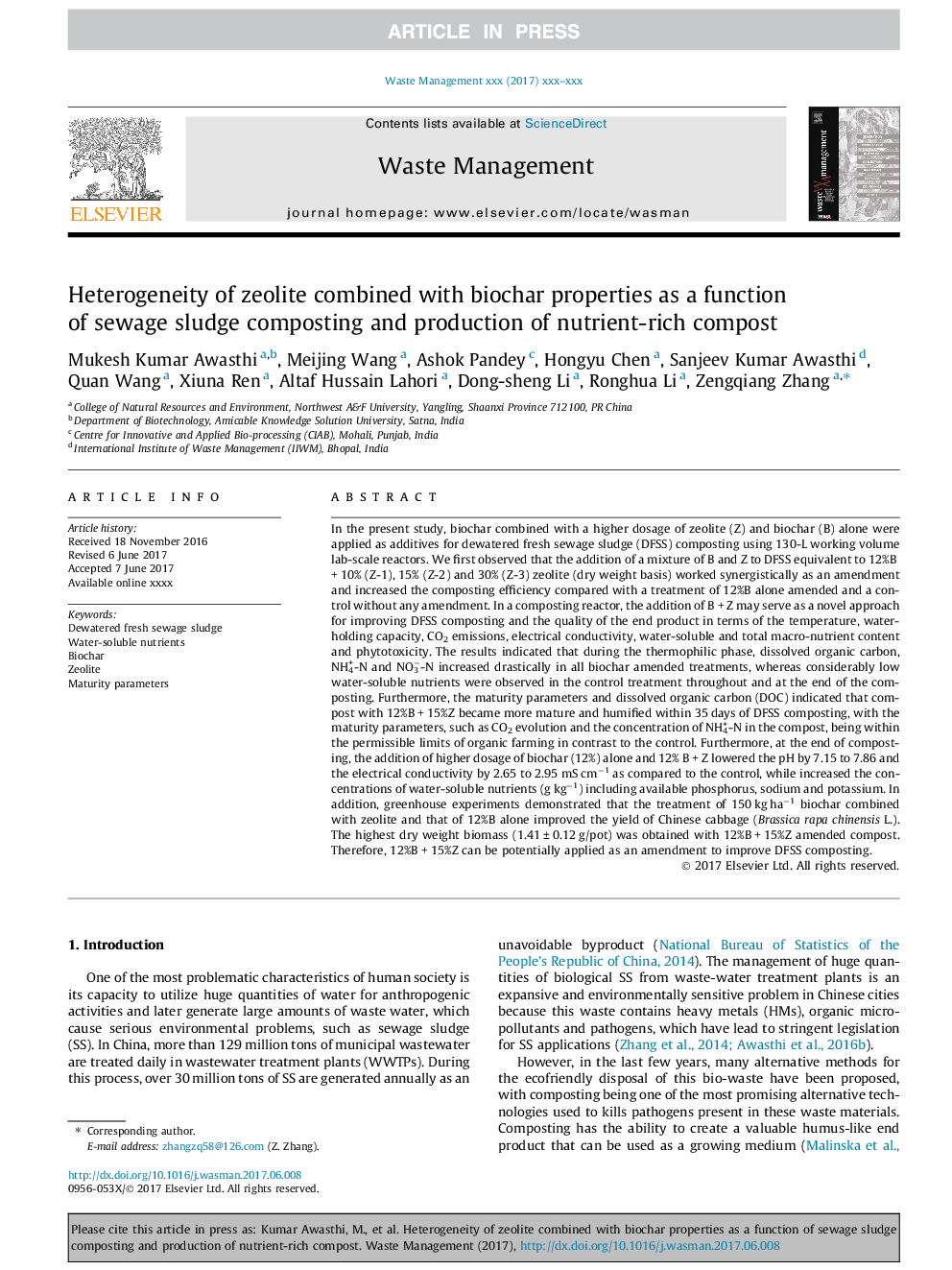| Article ID | Journal | Published Year | Pages | File Type |
|---|---|---|---|---|
| 5756623 | Waste Management | 2017 | 14 Pages |
Abstract
In the present study, biochar combined with a higher dosage of zeolite (Z) and biochar (B) alone were applied as additives for dewatered fresh sewage sludge (DFSS) composting using 130-L working volume lab-scale reactors. We first observed that the addition of a mixture of B and Z to DFSS equivalent to 12%B + 10% (Z-1), 15% (Z-2) and 30% (Z-3) zeolite (dry weight basis) worked synergistically as an amendment and increased the composting efficiency compared with a treatment of 12%B alone amended and a control without any amendment. In a composting reactor, the addition of B + Z may serve as a novel approach for improving DFSS composting and the quality of the end product in terms of the temperature, water-holding capacity, CO2 emissions, electrical conductivity, water-soluble and total macro-nutrient content and phytotoxicity. The results indicated that during the thermophilic phase, dissolved organic carbon, NH4+-N and NO3â-N increased drastically in all biochar amended treatments, whereas considerably low water-soluble nutrients were observed in the control treatment throughout and at the end of the composting. Furthermore, the maturity parameters and dissolved organic carbon (DOC) indicated that compost with 12%B + 15%Z became more mature and humified within 35 days of DFSS composting, with the maturity parameters, such as CO2 evolution and the concentration of NH4+-N in the compost, being within the permissible limits of organic farming in contrast to the control. Furthermore, at the end of composting, the addition of higher dosage of biochar (12%) alone and 12% B + Z lowered the pH by 7.15 to 7.86 and the electrical conductivity by 2.65 to 2.95 mS cmâ1 as compared to the control, while increased the concentrations of water-soluble nutrients (g kgâ1) including available phosphorus, sodium and potassium. In addition, greenhouse experiments demonstrated that the treatment of 150 kg haâ1 biochar combined with zeolite and that of 12%B alone improved the yield of Chinese cabbage (Brassica rapa chinensis L.). The highest dry weight biomass (1.41 ± 0.12 g/pot) was obtained with 12%B + 15%Z amended compost. Therefore, 12%B + 15%Z can be potentially applied as an amendment to improve DFSS composting.
Related Topics
Physical Sciences and Engineering
Earth and Planetary Sciences
Geotechnical Engineering and Engineering Geology
Authors
Mukesh Kumar Awasthi, Meijing Wang, Ashok Pandey, Hongyu Chen, Sanjeev Kumar Awasthi, Quan Wang, Xiuna Ren, Altaf Hussain Lahori, Dong-sheng Li, Ronghua Li, Zengqiang Zhang,
